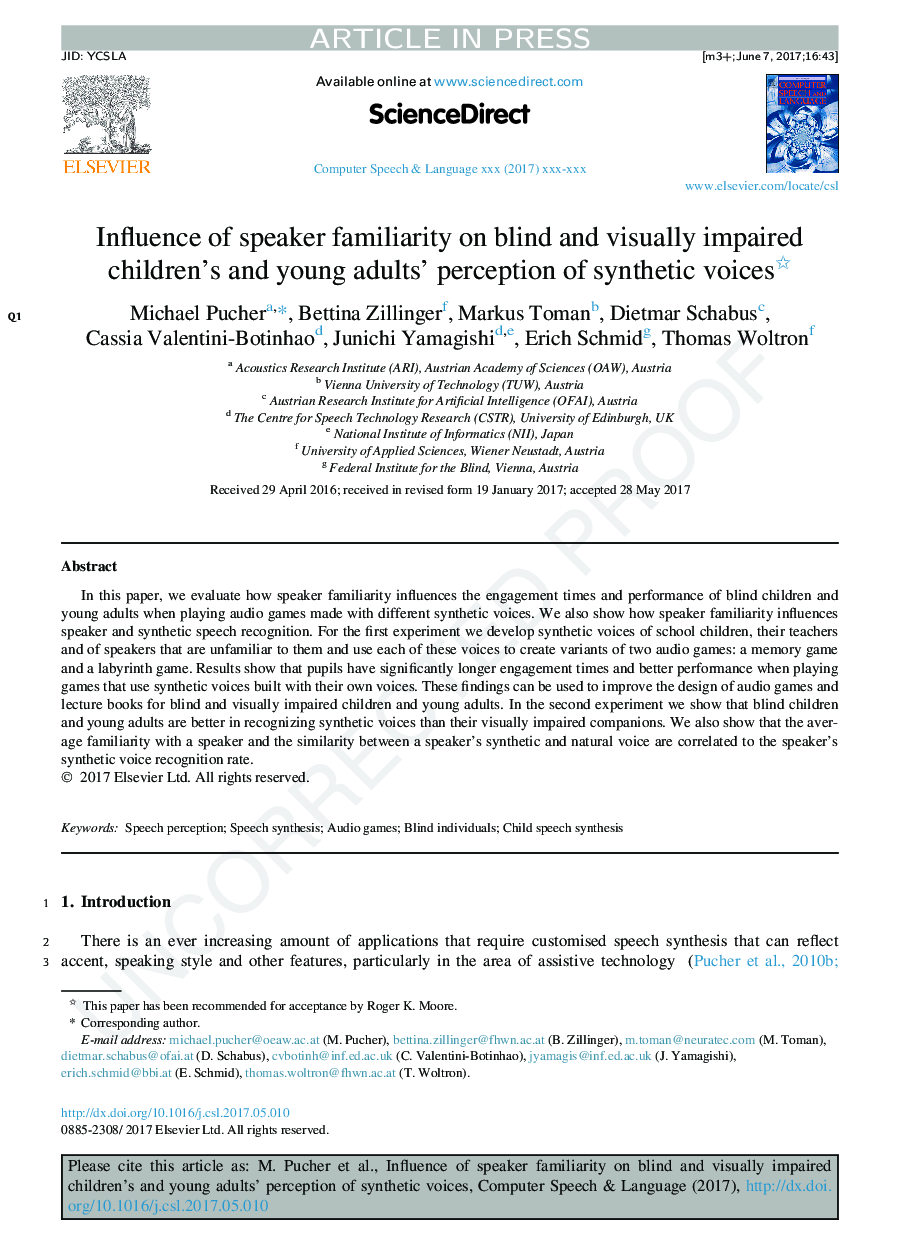| Article ID | Journal | Published Year | Pages | File Type |
|---|---|---|---|---|
| 4973708 | Computer Speech & Language | 2017 | 17 Pages |
Abstract
In this paper, we evaluate how speaker familiarity influences the engagement times and performance of blind children and young adults when playing audio games made with different synthetic voices. We also show how speaker familiarity influences speaker and synthetic speech recognition. For the first experiment we develop synthetic voices of school children, their teachers and of speakers that are unfamiliar to them and use each of these voices to create variants of two audio games: a memory game and a labyrinth game. Results show that pupils have significantly longer engagement times and better performance when playing games that use synthetic voices built with their own voices. These findings can be used to improve the design of audio games and lecture books for blind and visually impaired children and young adults. In the second experiment we show that blind children and young adults are better in recognizing synthetic voices than their visually impaired companions. We also show that the average familiarity with a speaker and the similarity between a speaker's synthetic and natural voice are correlated to the speaker's synthetic voice recognition rate.
Keywords
Related Topics
Physical Sciences and Engineering
Computer Science
Signal Processing
Authors
Michael Pucher, Bettina Zillinger, Markus Toman, Dietmar Schabus, Cassia Valentini-Botinhao, Junichi Yamagishi, Erich Schmid, Thomas Woltron,
